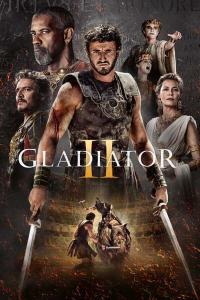Torrent details for "Baaquie B. Quantum Computers. Theory and Algorithms 2023 [andryold1]" Log in to bookmark
Controls:
External index by SiteBot Verified
Category:
Language:
 English
EnglishTotal Size:
4.23 MB
Info Hash:
1810b61d55d9346aacdd907b7639875b5bbe54c1
Added By:
Added:
15-01-2023 19:03
Views:
156
Health:

Seeds:
2
Leechers:
0
Completed:
114
Textbook in PDF formatExternally indexed torrent If you are the original uploader, contact staff to have it moved to your account
This book presents various theories and algorithms to create a quantum computer. The concept of the classical and quantum computers, and the concept of circuits and gates are reviewed. The example of the Deutsch and the Deutsch-Josca algorithm is discussed to illustrate some key features of quantum computing. The Grover algorithm, considered to be of major milestone of the subject, is discussed in detail to exemplify the techniques used in computer algorithms. The role of quantum superposition (also called quantum parallelism) and of quantum entanglement is discussed in order to understand the key advantages of a quantum over a classical computer.
The focus of this introductory book is on the theoretical and algorithmic aspects of quantum computers. A few algorithms are employed to illustrate the main ideas in quantum algorithms. The main aim of this introductory text is to clarify precisely why a quantum computer is so much more powerful than any possible classical computer.
The ideas that underpin a quantum computer are explained with a minimum recourse to advanced mathematics, and wherever possible, quantum algorithm are stated in a non-mathematical language. The physics of how to create a quantum computer, the hardware, has been eschewed as it is not essential for understanding the logic of quantum algorithms. This is similar to using a laptop without knowing anything about electrical engineering.
The field of quantum computers is an emerging technology, and quantum algorithms are codes that can vastly speed up information processing, far outpacing currently used classical computers. Classical computers refer to computers that are constructed with electronics circuits and are based on the existing paradigm of computer science. Quantum computers have potential applications in a vast number of fields, such as cryptography, manufacturing, information and communications technology, finance, autonomous vehicles, pharmaceuticals, energy, logistics, artificial intelligence and so on. In recent years, there is hardly a day that goes by without some articles touching on the potential importance of quantum computers, as well as on the intense competition among various companies and countries that are trying to take the lead in developing a practical quantum computing device.
It will be seen that the algorithms in quantum computers are expressed in terms of quantum gates that refer to specific quantum circuits (hardware) that encode these quantum gates the algorithms are directly based on the underlying quantum circuits that realize these algorithms. This is the reason that a high-level programming language like C has not yet emerged for quantum computers because these are largely based on intuition and thinking derived from everyday life—and which does not refer to any of the underlying gates and circuits. The current level of understanding of quantum algorithms has a logical structure that is quite counterintuitive and not similar to the algorithms employed in classical computers.
This book is divided into the following four parts:
1. The topics in Part I have been chosen to introduce non-specialists and newcomers to this field.
2. Part II discusses in great detail some of the important special cases that illustrate the workings of a quantum algorithm.
3. Part III discusses relatively more advanced topics as well as some important applications of quantum algorithms.
4. The last part is a discussions of some of the general features of quantum algorithms.
1 Introduction
Fundamentals
2 Binary Numbers, Vectors, Matrices and Tensor Products
3 Classical Gates and Algorithms
4 Principles of Quantum Mechanics
5 Quantum Superposition and Entanglement
6 Binary Degrees of Freedom and Qubits
7 Quantum Gates and Circuits
8 Phase Estimation and quantum Fourier Transform (qFT)
Quantum Algorithms
9 Deutsch Algorithm
10 Deutsch–Jozsa Algorithm
11 Grover’s Algorithm
12 Simon’s Algorithm
13 Shor’s Algorithm
Applications
14 Quantum Algorithm for Option Pricing
15 Solving Linear Equations
16 Quantum-Classical Hybrid Algorithms
17 Quantum Error Correction
18 One-Way Quantum Computer
Summary
19 Efficiency of a Quantum Computer















































